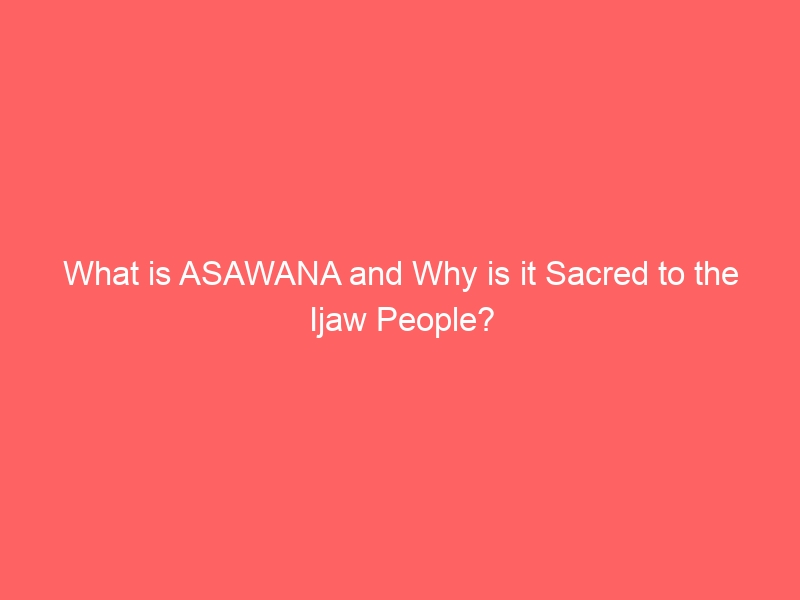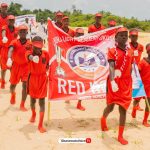The Ijaws, one of the oldest ethnic groups in Nigeria, have a deeply rooted tradition of resistance, resilience, and cultural identity. Among the many symbols of their heritage, one chant stands out as a powerful expression of their fight for freedom – ASAWANA. More than just a word, it is a spirit-infused war cry, a declaration of resistance, and a call for deliverance in times of great peril.
Unlike ordinary words that are spoken in daily conversations, ASAWANA is not merely said—it is shouted. It is an invocation, a spiritual cry, a forceful proclamation that echoes through the air whenever an Ijaw warrior finds themselves in a desperate situation. It is a word of war, survival, and triumph.
According to Ijaw belief, the chant of ASAWANA is more than just a vocal expression; it carries an unseen force. When an Ijaw person finds themselves in trouble—whether in physical battle, in a moment of life-threatening danger, or in situations where their freedom is at stake—they shout ASAWANA with all the strength they can muster. It is said that in that moment, the spirit of their ancestors rises, the forces of the land and water respond, and the tides turn in their favor.
Throughout history, the Ijaws have been warriors, defenders of their land and identity. From their early conflicts with colonial invaders to their struggles in modern times for resource control and political recognition, the cry of ASAWANA has remained a powerful symbol of resistance.
During inter-tribal wars and confrontations with external forces, Ijaw warriors would chant ASAWANA as they launched attacks or defended their territories. It was believed that this battle cry instilled fear in their enemies while summoning the courage of their own warriors. The very act of shouting it was an acknowledgment that they were not alone—spirits of the ancestors, the gods of the rivers, and the elements of nature stood by their side.
The Ijaws have a long history of resisting oppression, from colonial rule to contemporary struggles for environmental justice and political autonomy. In the era of British colonialism, when foreign powers attempted to subdue the Niger Delta, Ijaw leaders and warriors invoked ASAWANA to rally their people and remind them of their unbreakable spirit.
Even in modern times, the chant retains its power. In moments of extreme injustice, when Ijaw communities feel cornered or oppressed, ASAWANA is still shouted as a call to action. It is not just a historical relic but a living tradition—a reminder that freedom is never given; it is fought for.
To the Ijaws, ASAWANA is not just a battle cry; it is a spiritual weapon. Many believe that when the chant is shouted, unseen forces are set into motion. The spirits of the water and land, the deities that guide the Ijaw people, and the souls of fallen warriors all awaken to respond to the call.
In Ijaw cosmology, there is a strong connection between the physical and spiritual worlds. Words are not just sounds; they carry energy. ASAWANA is believed to be a word of power, a sound that commands attention beyond the human realm. It is a declaration that the person shouting it will not go down without a fight—that they will stand their ground and call upon every force available to ensure their survival.
In contemporary times, ASAWANA has transcended its war-time origins. Today, it is also a chant of resilience, used in protests, community gatherings, and moments of collective struggle. Activists fighting for the rights of the Niger Delta people have been known to invoke ASAWANA when demanding justice, emphasizing that their fight is part of a long-standing tradition of resistance.
Even in music and cultural performances, ASAWANA finds its way into Ijaw expressions. It appears in songs, poetry, and storytelling as a reminder of the Ijaw people’s enduring spirit. It serves as a bridge between the past and the present, ensuring that future generations never forget the power of their voice.
By Jacob Brakere Abai












